Introduction
Choosing the right elevator company is a critical decision that can significantly affect the functionality and safety of your building. Elevators are not just a mode of transportation between floors; they are integral to the daily operations of a building, impacting traffic flow, safety, and the overall impression of your facility. In this blog post, we will explore essential factors to consider when selecting the best elevator company to meet your specific needs, ensuring reliability, efficiency, and safety for users.
Traffic and Building Capacity
Before selecting an elevator, it’s crucial to assess the building’s size and the expected traffic patterns. Elevators in a commercial high-rise will have different requirements than those in a residential building. Consider factors such as:
- Peak Usage: Identify times when elevator usage is at its highest and evaluate how this impacts wait times and congestion.
- Building Size: Larger buildings may require more elevators or specific types like service or freight elevators to efficiently manage the flow of people and goods.
Read More: Your Elevator Maintenance Checklist – What to Include
Types of Elevators and Their Suitability
Different environments require different elevator systems. For instance:
- Hydraulic Elevators: Best for low-rise buildings, these are cost-effective but slower and have a limited travel distance.
- Traction Elevators: Ideal for mid to high-rise buildings, offering faster speeds and greater height capabilities.
- Machine Room-Less (MRL) Elevators: These are space and energy-efficient, suitable for buildings with limited machine room space.
Budget Considerations
Elevator costs can vary widely based on the type, technology, and customization options. It’s essential to balance your budget with your needs:
- Initial Installation: Consider upfront costs versus long-term benefits. A cheaper initial option might lead to higher maintenance costs.
- Maintenance and Operation Costs: Evaluate the efficiency and durability of the elevator systems, as these will impact ongoing expenses.
Experience and Reputation
The experience and reputation of an elevator company are indicative of its reliability and quality of service. Look for companies with:
- Longevity in the Market: Companies that have been in business for many years are likely to have more comprehensive expertise and stability.
- Positive Reviews and Testimonials: Check online reviews, case studies, and ask for client references to gauge customer satisfaction.
Safety and Compliance Standards
Safety is paramount when it comes to elevators. Ensure that your chosen company adheres to the highest safety standards by checking:
- Certifications and Licenses: Verify that the company has all necessary industry certifications and that their products comply with national and international safety standards.
- Regular Safety Audits: A reputable company will have regular safety audits to ensure all systems are up to code.
Technological Advancements
In today’s fast-evolving world, having the latest technology can significantly enhance the efficiency and user experience of your elevators. Consider companies that offer:
- Smart Elevator Solutions: Features like destination dispatch, energy regeneration, and IoT connectivity can optimize energy use and improve service times.
- Customization Options: Technological flexibility that can match the specific aesthetic and functional requirements of your building.
Maintenance Contracts and Service Offerings
A robust maintenance contract is crucial for keeping elevators in optimal condition. Look for:
- Comprehensive Coverage: Contracts should cover regular maintenance, inspections, and emergency repairs.
- Transparency: Clear terms and conditions stating what is included and what is billed extra.
Customer Support and Responsiveness
The quality of customer support can affect your long-term satisfaction with the elevator company. Key aspects include:
- 24/7 Availability: Elevator issues can happen at any time, and immediate support is essential.
- Professionalism and Expertise: Technicians should be knowledgeable, courteous, and efficient.
Environmental Considerations
For businesses prioritizing sustainability, choosing an elevator company that provides eco-friendly options is crucial. Features to look for include:
- Energy-Efficient Systems: Such as elevators with regenerative drives that can generate power.
- Sustainable Materials: Companies that use materials that are sourced responsibly and are more environmentally friendly.
Conclusion
Selecting the right elevator company involves careful consideration of your specific needs, thorough evaluation of potential providers, and understanding the long-term implications of your choice. By considering these factors, you can ensure that the elevator company you choose will provide not only a functional and safe elevator system but also one that aligns with your building’s operational requirements and aesthetic values.
FAQs
- What are the factors to be considered in selecting elevators?
- Building Requirements: Consider the building’s size, the expected traffic flow, and peak usage times.
- Safety and Compliance: Ensure the elevator adheres to all relevant safety standards and codes.
- Technological Needs: Evaluate if advanced features like IoT connectivity or destination dispatch systems are required.
- Aesthetics: The elevator should complement the interior design and architectural style of the building.
- Budget: Consider both the initial installation costs and long-term maintenance expenses.
- What are the main facts to consider in the elevator design process?
- Capacity and Speed: Based on the building’s function and size.
- Safety Features: Emergency controls, alarm systems, and compliance with safety regulations.
- Energy Efficiency: Features like regenerative drives and standby power options.
- Customization Options: Ability to tailor designs and features to match building aesthetics and functionality.
- What is a design consideration for elevators?
- Interior Space: Ensuring sufficient space for passengers and usability during peak hours.
- Door Operations: Choosing the right type of doors (e.g., sliding or swinging) to enhance traffic flow and safety.
- Control Systems: Deciding between traditional button controls or more sophisticated systems like touchscreens or voice commands.
- Accessibility: Making sure the elevator meets all accessibility requirements for disabled persons.
- What is the most important part of the elevator?
- The most crucial component is often considered to be the brake system, as it directly relates to the safety of the elevator.
- What is the factor of safety in elevator design?
- Factor of Safety (FoS): Refers to the capacity of a system to withstand load or stress, exceeding the expected or actual loads to ensure safety. Elevator designs typically incorporate a high FoS to handle unexpected situations like overloading.
- Which type of elevator is best?
- The “best” type depends on specific needs such as building height, intended use, and budget constraints. Hydraulic elevators are often preferred for low-rise buildings, while traction elevators are better suited for high-rise buildings due to their speed and efficiency.
- What type of elevator is the safest?
- Modern traction elevators with advanced safety features and compliance with international safety standards are generally considered the safest.

